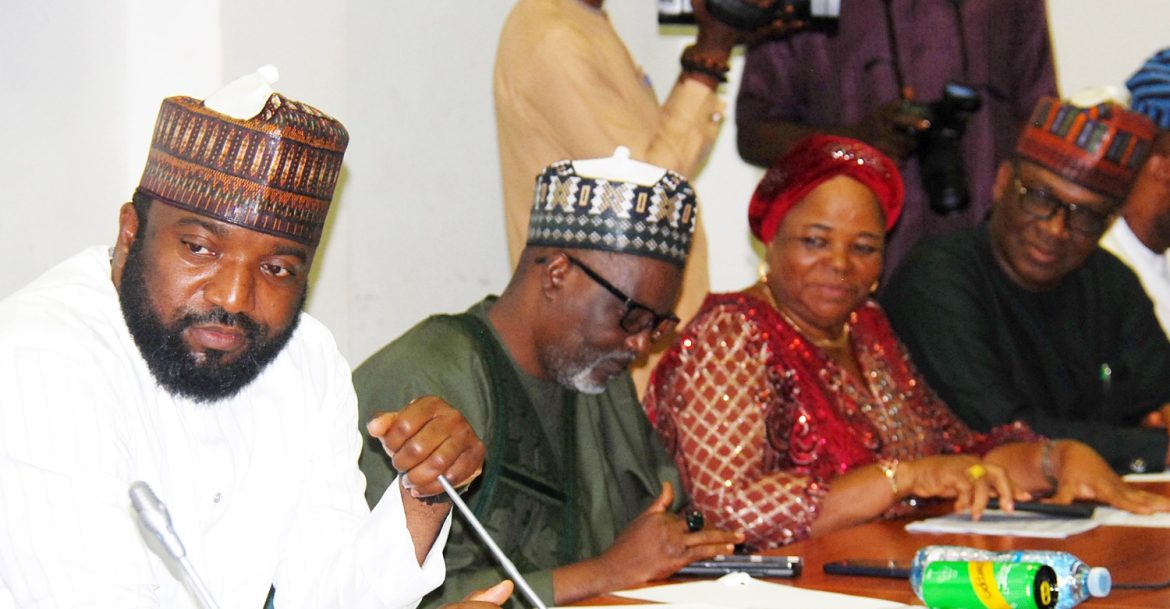453
By Tracy Moses
The House of Representatives Ad-hoc Committee on the Rehabilitation and Operationalisation of the Baro Inland Port has officially begun its work, with Chairman Hon. Saidu Abdullahi unveiling an ambitious roadmap to revive the long-neglected facility into a functional economic hub.
Speaking during the committee’s inaugural session held Wednesday at the National Assembly Complex, Hon. Abdullahi emphasized the pressing need to shift from rhetoric to action and restore Baro Port in Niger State, once a cornerstone of Nigeria’s multimodal transport network.
“Our goal is to transform years of empty promises into concrete results. Baro Port has been idle for too long, it’s time to reawaken this sleeping economic powerhouse,” Abdullahi declared.
He recalled the strategic importance of the port during the colonial era, when agricultural commodities from northern Nigeria were transported via rail to Baro and subsequently ferried down the inland waterways to southern seaports—a seamless blend of rail and river transport.
However, post-independence dependence on oil and the rise of road-based logistics rendered inland waterways underutilized, a shift Abdullahi believes has hampered both economic growth and environmental sustainability, while also putting immense pressure on Nigeria’s deteriorating road infrastructure.
Citing global benchmarks to illustrate the untapped potential, Abdullahi pointed to China’s Yangtze River Port, which stretches over 6,100 kilometers, and the Mississippi River Port system in the United States, which spans more than 12,000 miles and links 31 states via waterway trade routes.
“These examples demonstrate the economic power of inland water transport. Nigeria must adapt and replicate such models for national development,” he noted.
He identified three critical challenges standing in the way of Baro Port’s reactivation: dredging the channel to ensure vessel access, linking the port to the national railway via a Baro-Minna line, and constructing access roads to support cargo movement.
“The equipment needed to operate the port is already in place. What’s left are key infrastructure upgrades,” he explained.
Abdullahi said the committee’s core task is to bring relevant stakeholders to the table, diagnose the current roadblocks, and craft a strategic blueprint for the port’s operationalisation.
Addressing the financing gap, Abdullahi stressed the importance of alternative funding mechanisms.
“We can no longer depend solely on government allocations. It’s time to engage the private sector, seek development finance, and pursue public-private partnerships. Budget cycles alone won’t deliver this project,” he said.
He added that a successful Baro Port revival could serve as a national model for unlocking other stalled infrastructure projects.
“With a team drawn from all six geopolitical zones, we’re positioned to deliver a blueprint that others can emulate,” he affirmed.
He also appealed to the media to play a proactive role in amplifying progress, monitoring challenges, and galvanizing public support for the port’s transformation.
“This is a matter of national economic significance. We need the press to shine a light on the journey ahead, its milestones, roadblocks, and successes. Let’s partner to rebuild Baro, for commerce, for jobs, and for Nigeria,” he urged.
He commended members for their dedication and announced the formation of a technical sub-committee to provide expert input. The committee also adopted its comprehensive work plan during the meeting.
Several members emphasized the need for collaborative efforts and regional integration to position the port as a strategic gateway attractive to global shipping operators.
Former Deputy Speaker, Hon. Idris Wase, a member of the committee, emphasized the broader regional potential of Baro.
“This is far more than a Niger State concern. We must convey its transnational significance. Baro was originally envisioned to serve the greater West and North African sub-region,” Wase said.
He called for a narrative shift that presents Baro as a national and regional trade enabler.
Hon. Leke Abejide, Chairman of the House Committee on Customs and also a committee member, expressed concerns over the lack of incentives for international shipping lines, a key factor that has hindered similar projects such as Warri and Calabar ports.
“Shipping lines need a reason to come. Calabar and Warri failed because they didn’t offer incentives. Lagos succeeded because it secured an anchor client,” Abejide said.
He highlighted the Lagos Free Trade Zone as a case study, noting how the attraction of a major global shipping line created momentum and boosted traffic.
“All it takes is one major player. Once you bring in one, others will follow. Lagos got that right; others didn’t,” he concluded.



